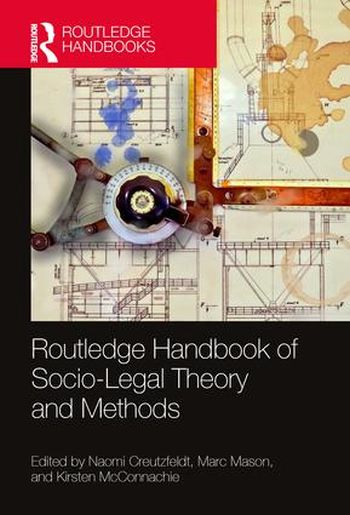
Drawing on a range of approaches from the social sciences and humanities, this handbook explores theoretical and empirical perspectives that address the articulation of law in society, and the social character of the rule of law.
The vast field of socio-legal studies provides multiple lenses through which law can be considered. Rather than seeking to define the field of socio-legal studies, this book takes up the experiences of researchers within the field. First-hand accounts of socio-legal research projects allow the reader to engage with diverse theoretical and methodological approaches within this fluid, interdisciplinary area. The book provides a rich resource for those interested in deepening their understanding of the variety of theories and methods available when studying law in its broadest social context, as well as setting those within the history of the socio-legal movement. The chapters consider multiple disciplinary lenses – including feminism, anthropology and sociology – as well as a variety of methodologies, including: narrative, visual and spatial, psychological, economic and epidemiological approaches. Moreover, these are applied in a range of substantive contexts such as online hate speech, environmental law, biotechnology, research in post-conflict situations, race and LGBT+ lawyers.
The Handbook brings together younger contributors and some of the most well-known names in the socio-legal field. It offers a fresh perspective on the past, present and future of socio-legal studies that will appeal to students and scholars with relevant interests in a range of subjects, including law, sociology, and politics.